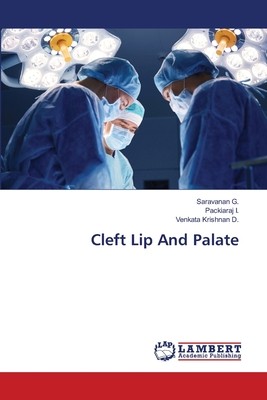
- We will send in 10–14 business days.
- Author: Saravanan G
- Publisher: LAP Lambert Academic Publishing
- ISBN-10: 6203465143
- ISBN-13: 9786203465143
- Format: 15.2 x 22.9 x 1.2 cm, softcover
- Language: English
- SAVE -10% with code: EXTRA
Reviews
Description
Craniofacial anomalies comprise a large fraction of all human birth defects, less frequent only than congenital heart disorders and clubfoot. Cleft lip with or without palate (CL/P) is the most common craniofacial birth defect with an estimated quarter of a million affected babies born each year in the world. Clefts of the lip and palate reported with an incidence of between 3.7 per 1000 and 0.4 per 1000 live births. An understanding of the mechanisms involved in the pathogenesis of clefts contributes to effective management and prevention strategies by generating hypotheses that can be tested by laboratory and clinical research.
EXTRA 10 % discount with code: EXTRA
The promotion ends in 20d.11:00:47
The discount code is valid when purchasing from 10 €. Discounts do not stack.
- Author: Saravanan G
- Publisher: LAP Lambert Academic Publishing
- ISBN-10: 6203465143
- ISBN-13: 9786203465143
- Format: 15.2 x 22.9 x 1.2 cm, softcover
- Language: English English
Craniofacial anomalies comprise a large fraction of all human birth defects, less frequent only than congenital heart disorders and clubfoot. Cleft lip with or without palate (CL/P) is the most common craniofacial birth defect with an estimated quarter of a million affected babies born each year in the world. Clefts of the lip and palate reported with an incidence of between 3.7 per 1000 and 0.4 per 1000 live births. An understanding of the mechanisms involved in the pathogenesis of clefts contributes to effective management and prevention strategies by generating hypotheses that can be tested by laboratory and clinical research.


Reviews